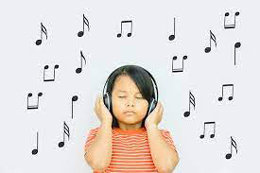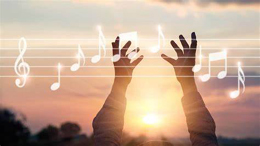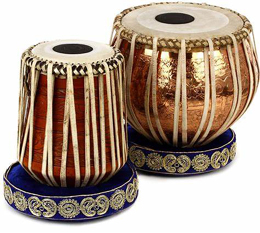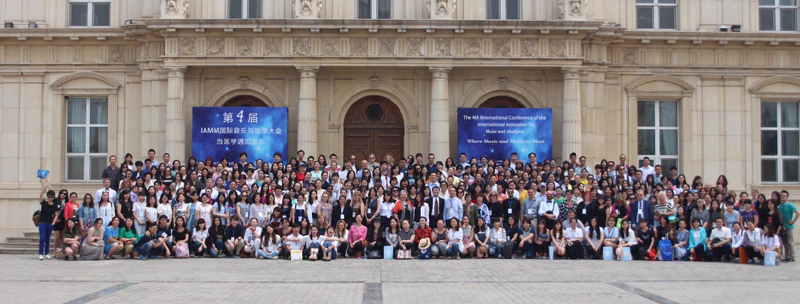Music therapy
Project Empathy: Offering Therapy and Care to Children and their Caregivers
Abstract
Know Your Rhythm, is a training programme for therapy and education, inspired by the holistic paradigm of Integral Yoga. Know Your Rhythm helps caregivers to discover their own sense of Rhythm and musicality in life and work, raising well-being, wellness, empathy, teamwork and leadership with immersive exercises in Music Therapy along with Yoga Therapy. The training includes helping the caregivers to carry out their activities in a proactive way with empathy and joy.
Over the past decade, one of the focal areas of Know Your Rhythm has been to work with over 1,000 children with health challenges including children with special needs, cancer, HIV, learning disabilities and trauma. A major component of this initiative has been to train over 300 caregivers of these children, including special educators, therapists, nurses, paediatric doctors and parents serving these children. Know Your Rhythm draws its inspiration from Integral Yoga with special focus on Integral Health-Education-Music. We have named this initiative Project Empathy.
Know Your Rhythm via Project Empathy has reached:
• The cancer and HIV ward, Institute of Child Health & Hospital for Children, Government of India, Chennai, considered one of south Asia’s largest paediatric hospitals.
• Satya Special School, Pondicherry
• Special School for Mental Retardation, CERTH-India Hospital, Pondicherry in collaboration with JAL
• Deepam School, Auroville
• Silver Thread Foundation, Moscow, Saint Petersburg, Russia.
Our inspiration begins with the Mother’s words, “The role of music lies in helping the consciousness to uplift itself towards the spiritual heights (1).”
We believe that Music Therapy establishes overall well-being, both as a feeling within and external communication from the special educator as caregiver to the children with special needs as care receivers. The deeper the communication becomes, the more expressive the response that emerges from the children, leading to an atmosphere of empathy, collaboration and joy. As stated in the book Music Therapy — an Art beyond Words by British music therapist Leslie Bunt, “music therapy offers a unique opportunity to a handicapped child to uncover/discover an ability previously not recognised. This can foster communication and build relationships with adults and peers (2).”
Rhythm is where we begin since we believe it is innate in each one of us. Within Know Your Rhythm’s repertoire of immersive exercises, when it comes to training the caregivers — ranging from primary school teachers, special educators or even nurses — we have focused on rhythm, and more specifically on ancient Indian vocal percussion systems. In the Carnatic system, solkattu is a well-developed vocal percussion system with well-coded phonemes and hand gestures, with applications to percussion instruments like the Mridangam and also classical dance like Bharatnatyam. If we watch a Carnatic music concert, we observe both the performers and the rasika, i.e. the listener tapping the rhythm in resonance. In the Hindusthani system, we have bols, also a well-encoded vocal percussion system with applications in percussion instruments such as tabla and a dance-form such as Kathak. Bol is a mnemonic syllable. It is used to define the rhythm or tal. The word bol comes from the Hindi verb, bolna, which means ‘to speak or vocalise.’[3]
For children, including those with special needs, we have observed that full body learning seems to work well with better retention, collaboration and motivation. Our exercises with rhythm tap into vocalisation of phonemes, hand gestures and tapping, and foot tapping, along with metaphors of Mother Nature such as the flight of the pigeon and the walk of the elephant, open up the possibility of storytelling with rhythm. When we experience full body learning with the above, we are perhaps increasing the probability of learning and therapy happening, including speech-therapy, motor skills, and fine-motor skills, potentially leading to better cognition.
Here are a couple of exercises from our Know Your Rhythm’s repertoire.
The elephant walk:
Tak Dhina Dhin
Thun Dhina Dhin
Apart from vocalising the above couplet, we embody the elephant by swaying from side to side in rhythm with the first syllable of the couplet above, namely Tak and Thun, with one of our hands taking the form of the trunk. Advanced exercises include walking like the elephant. For children based out of Pondicherry, we help teachers to build stories around Lakshmi, the popular elephant associated with the Manakula Vinayagar temple.
This bol (vocal percussion unit) has its origin in the vocal percussion associated with the tabla, the percussion instrument. This exercise becomes a medium of non-verbal communication centred on rhythm between the caregiver and the care receiver. With its origin simulating Gaja gati chanda or the lilt of the elephant’s walk, this lesson engages children in a playful manner while enhancing their speech, proprioception and kinaesthetic skills. It improves the dexterity and movement of the tongue and is therefore applied in speech therapy. From a Music Therapy perspective, vocal percussion is, “a set of techniques with specific musical, therapeutic, logopaedic, psychomotor and pedagogical values. It is especially appropriate to facilitate and improve the faculties of attention, concentration, assimilation, storage and repetition: in this sense it is aimed at the fundamental aspects of the so-called ‘operational intelligence (3).”
When combined with kinaesthetics, the therapeutic value tends to increase manifold by improving motor-skills of hands and legs and the body’s ability to sense movement and location. Bodily-kinaesthetic is a learning style often referred to as ‘learning with the hands’ or physical learning. Many children with special needs tend to learn more easily by doing, exploring and discovering. Proprioception, otherwise known as kinaesthesia, which is our body’s ability to sense movement, action and location.
A short video documentary of Know Your Rhythm’s training of Indian special educators and children with special needs with Indian vocal percussion system was shown at the 14th World Congress for Music Therapy, University of Music & Performing Arts, Vienna, in 2014.
A 28-minute documentary film, ‘Rhythm in Music Therapy - Composition and Composure’ (4) was presented as part of our paper with the same title at the 4th International conference of International Association for Music & Medicine (IAMM), in Beijing, June 2016. The video evidence is based on our Know Your Rhythm training programme for special educators and children with special needs at the Special School Mental Retardation, CERTH-India Hospital, Pondicherry in collaboration with JAL, across 2 years. The documentary was presented by Dr. Patravoot Vatanasapt (Thailand), President of IAMM.
https://vimeo.com/172241757
password: ninad123
here is a trailer from the same documentary:
https://www.youtube.com/watch?v=W6AcWigd-dY
In the near future, we hope to explore, experiment and assess more with the Indian vocal percussion system.
References
1. The Mother. The Collected Works of The Mother, Volume 12. 2nd ed. Pondicherry: Sri Aurobindo Ashram Trust; 1999, p. 240.
2. Bunt L. Music Therapy – An Art beyond Words. London: Brunner-Routledge, 1994, p. 122.
3. Chowdhury, AB. The ‘Aha!’ Moment Experiments and Experiences of Composing for Music Therapy. In: (eds) Sundar S, Srinivasan, AR. International Conference on Music Therapy Proceedings Vellore 2015. ‘Current Trends in Music Therapy Education and Research’. International Journal of Pharma and Bio Sciences 2015: 70-84.
4. Chowdhury, AB. Rhythm in Music Therapy - Composition and Composure, 4th International Conference of International Association for Music & Medicine (IAMM), Beijing, June 2016.
Arnab Bishnu Chowdhury, a composer, music therapist and founder of Know Your Rhythm, is a researcher at the Sri Aurobindo Ashram in Pondicherry; Prarthana Kalaskar is a long-time follower of Integral Yoga and immersed in energy and frequency medicine modalities; Sevastiana Korotynskaia, a concert violinist and arranger, is a faculty member at Know Your Rhythm.
Share with us (Comments,contributions,opinions)
When reproducing this feature, please credit NAMAH,and give the byline. Please send us cuttings.




